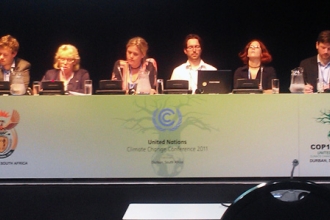Social capital, cooperative behavior and norm-enforcement
Studies have shown differences in cooperative behavior across countries and in the use of (and reaction to) a norm enforcement mechanism in cross-cultural studies.
The authors present data that prove that stark differences in both dimensions can exist even within the same town. They created a unique data set, based on one-shot public goods experiments in South Africa. Most of the group differences can be explained by variables for social capital and social environment, such as trust or household violence.


